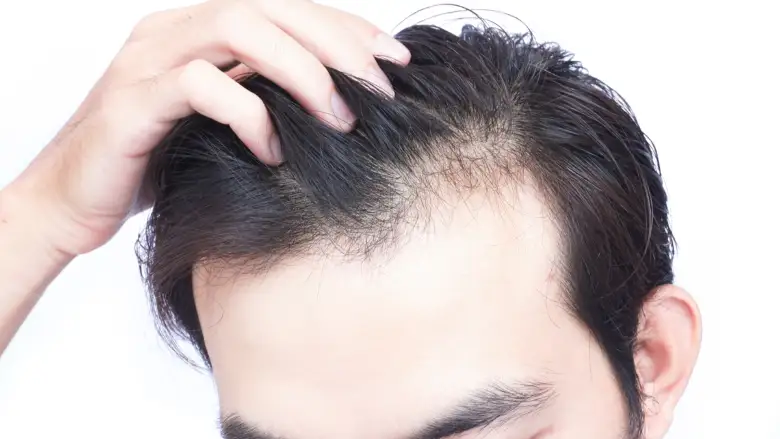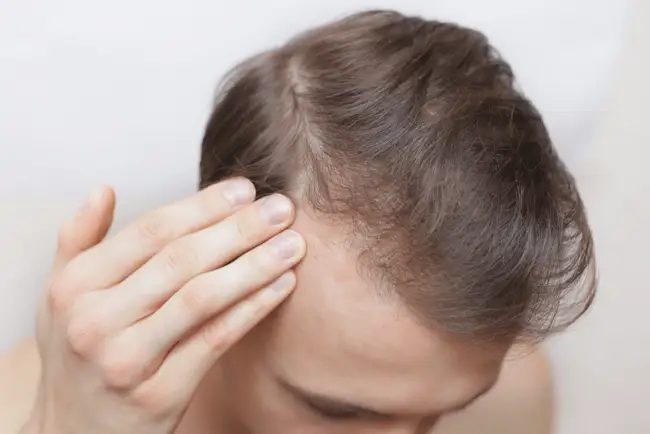Hair loss can be distressing, mainly if it seems sudden or unusual. Iron deficiency is one that is occasionally overlooked, even though there are other causes of hair loss. This post will go over how iron deficiency impacts hair health, who is most at risk, and how you might have vivid hair once more.
What is Iron Deficiency?
Specially, in the creation of hemoglobin, a protein attending in your red blood cells, Iron is a mineral of crucial importance for your overall health. Hemoglobin carries oxygen to every cell in your body, comprehensive of those that support hair growth.
Iron insufficiency anaemia results from your body failing to produce enough haemoglobin when it lacks sufficient Iron. Among the several signs this disorder can cause are exhaustion, fragility, and, indeed, hair loss. Dermatologist Dr. Melissa Piliang of Cleveland Clinic notes, “Iron is absolutely crucial for hair health and growth. Patients who suffer from hair loss can have low iron levels.
Can Iron Deficiency Cause Hair Loss?
Does iron deficiency cause hair loss? The answer is yes. Hemoglobin, which is necessary for hair development, is produced in part by Iron. Lack of Iron lowers the oxygen your blood can supply to hair follicles and scalp, which weakens your hair and results in early fallout.
Low iron levels may promote hair loss in a way similar to inherited male and female pattern baldness, according to a study written in the Journal of Korean Medical Science. Stated another way, the hair loss is thinning over the scalp rather than spotty. Additionally observed by Dr. Piliang, “Hair shedding is often one of the first signs of low iron levels in female hair loss iron deficiency.”
Who is at Risk for Iron Deficiency Hair Loss?
Iron deficiency is not rare, particularly in some populations of people. These are some essential demographics most likely under danger:
Women of Child-Bearing Age
Menstruation, pregnancy, and nursing cause female hair loss and iron deficiency in Child-Bearing Age more likely an iron shortage. Every one of these natural processes reduces iron stores in the body; many women do not eat enough foods high in Iron to offset this.
Dr. Piliang notes that many women shun red meat, one of the richest sources of Iron. For most female hair loss iron deficiency, a modest intake of two 4-ounce servings of red meat per week is sufficient to preserve appropriate iron levels.
Vegetarians and Vegans:
Although plant-based diets might be good, they might lack easily absorbed Iron. Iron from plant origins—also known as non-heme Iron—is less successfully soaked up than Iron from animal sources—heme iron. Vegetarians and vegans should focus on including foods high in Iron—such as lentils, spinach, and fortified cereals—into their diets. intigrating these foods with fruit and vegetables high in vitamin C will help to increase iron absorption.
Athletes and Heavy Exercisers:
Over time, moderate blood loss results from tiny tears in the stomach lining or joints brought on by intense exercise. “People who engage in heavy exercise, like runners, may not realize they are losing iron in small amounts during their workout,” notes Dr. Piliang. At last, this can lead to hair loss and iron shortage.
Identifying the Symptoms of Iron Deficiency Hair Loss
Iron deficiency may be the cause of your unexplained hair loss. Features of Iron deficiency-related hair loss include:
- Thinning or hair loss across the scalp
- More excellent hair shedding—more hair in your shower drain or brush.
- Brittle or fragile hair
Iron deficiency does not, however, produce simply hair loss as a sign. Other often occurring indicators are:
- Fatigue or weakness
- Dizziness or fainting
- Shortness of breath
- Cold hands and feet
- Pale skin
- Brittle nails
See a doctor if you believe you could be Iron deficient. A blood test gauging your ferritin—iron stores—can verify whether low Iron is the offender.
Can Hair Loss Due to Iron Deficiency Be Reversed?
The good news is that iron insufficiency causes usually transitory hair loss. Most people might expect to observe regrowth over time by adjusting their iron levels—either by diet modification or supplementation. “Eating a healthy diet with adequate iron-rich foods or taking an iron supplement can correct the deficiency and lead to hair regrowth,” notes Dr Piliang.
Although the regrowth process can take several months, medications like minoxidil—which is sold over-counter—can assist boost hair regrowth in the interim. For long-term effects, though, first address the underlying cause—iron deficiency.
How to Address Iron Deficiency for Hair Health
Once you have an iron deficiency diagnosis, there are numerous ways you might raise your iron levels and help promote good hair growth:
Dietary Changes:
One of the best strategies to raise your iron levels is to eat a well-balanced diet high in Iron. Some great iron sources are:
- Beef and lamb, red flesh
- poultry (turkey, chicken)
- Dark green leafy vegetables—spinach, kale—have
- Legumes and beans
- grains high in Iron
- Dried fruits, including apricots and raisins,
- Combining foods high in Iron with fruits high in vitamin C—such as oranges and strawberries—helps improve absorption.
Iron Supplements
Your doctor might advise iron supplements if food alone cannot fix your shortfall. These supplements should be taken under medical supervision since too much Iron may produce negative effects, including stomach disturbance or constipation. Dr. Piliang says, “Taking iron with vitamin C increases absorption and reduces gastrointestinal discomfort.”
Additional Tips for Preventing Hair Loss
Here are some ideas outside of simply increasing your iron levels to keep your hair healthy and stop hair loss
- Treat your hair gracefully :First of all,. Menoeuvre clear of tight hairstyles, strong chemicals, and too much heat styling—all of which can cause hair breakage and loss.
- Keep safe your scalp. Then,Guard your hair from cold, wind, and sun damage by wearing a scarf or cap.
- Carry on balanced diet. Next,Nutritional deficits, specially of Iron and other vital vitamins, might gradually diminish your hair.
One common but sometimes disregarded reason for hair loss is iron shortage. Recognizing the symptoms and adjusting your food or way of life will help you stop more hair loss and maybe promote hair regeneration. See a healthcare practitioner for a correct diagnosis and treatment plan if you believe iron deficiency is the cause of your hair loss.
There is not always permanent hair loss linked to an iron shortage. Using the correct technique can help your hair regain its vitality and condition.


